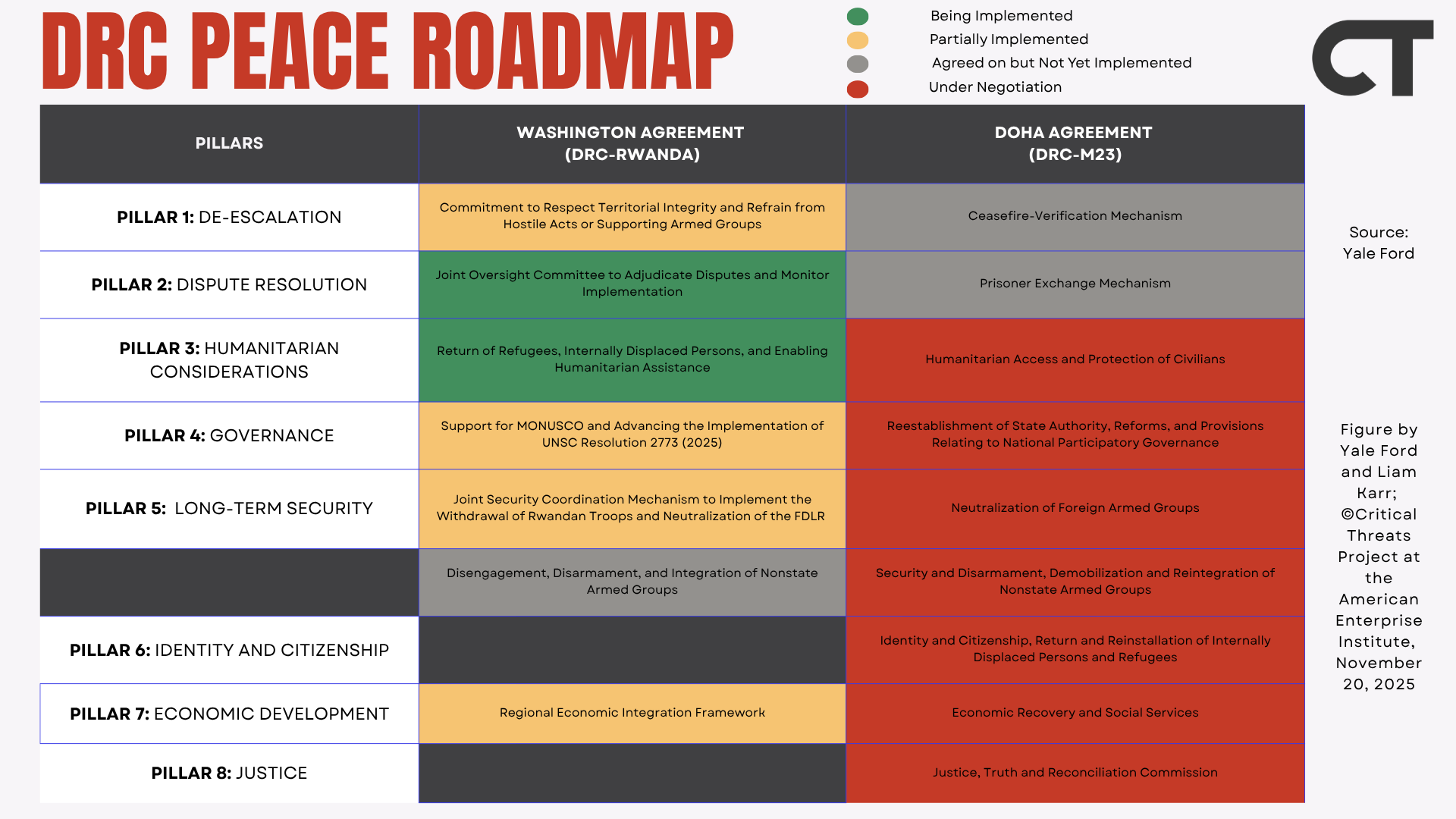DRC-M23 Doha Peace Framework Leaves a Long Road Ahead
See the PDF of this report here.
Read the full update with graphics here. Shapefiles are available by request via email to [email protected].
To receive the weekly Africa File and the triweekly Congo War Security Review via email, please subscribe here. Follow CTP on X, LinkedIn, and BlueSky.
Key Takeaway
The Congolese government and Rwandan-backed M23 rebels signed a nonbinding peace framework roadmap agreement, but most key provisions remain unresolved, face many challenges, and are far from implementation. Negotiations will almost certainly remain fragile and drag well into 2026 as the DRC and M23 negotiate the remaining six of eight total peace pillars, especially given that neither side has much incentive to abandon their maximalist positions.
DRC Peace Roadmap

Peace Process Outlook
- Doha Deal: Negotiations have been tense and slow and will almost certainly drag well into 2026.
- US Process: The US-backed peace framework will bring significant US investment to the region but is largely dependent on the resolution of the M23 conflict
- Conditions on the Ground: Fighting between M23 and pro-Congolese government forces continues on multiple frontlines in North and South Kivu provinces.
Two Agreed-Upon Pillars
- Ceasefire Mechanism: The two sides signed a ceasefire-verification mechanism to stabilize the military conflict on October 14.
- Prisoner Exchange: The two sides signed prisoner exchange agreements with the International Committee of the Red Cross to facilitate the swap of political prisoners on September 14
Six Unresolved Pillars
Humanitarian Access and Civilian Protection: Facilitating humanitarian access to conflict-affected areas and the declaration of a state of humanitarian emergency.
Return of State Authority: Governance reforms and the return of Congolese government authority to M23-controlled areas and the entire DRC.
Security: Establishment of a joint security force, disarmament and reintegration of rebel forces, and the neutralization of foreign armed groups.
Identity, Citizenship, and Refugees: Addressing the issue of national identity to facilitate the return of internally displaced persons and refugees.
Economy and Social Services: Improving the regional economy and restoring essential services.
Justice: Establishment of an independent national justice, truth, and reconciliation commission.
